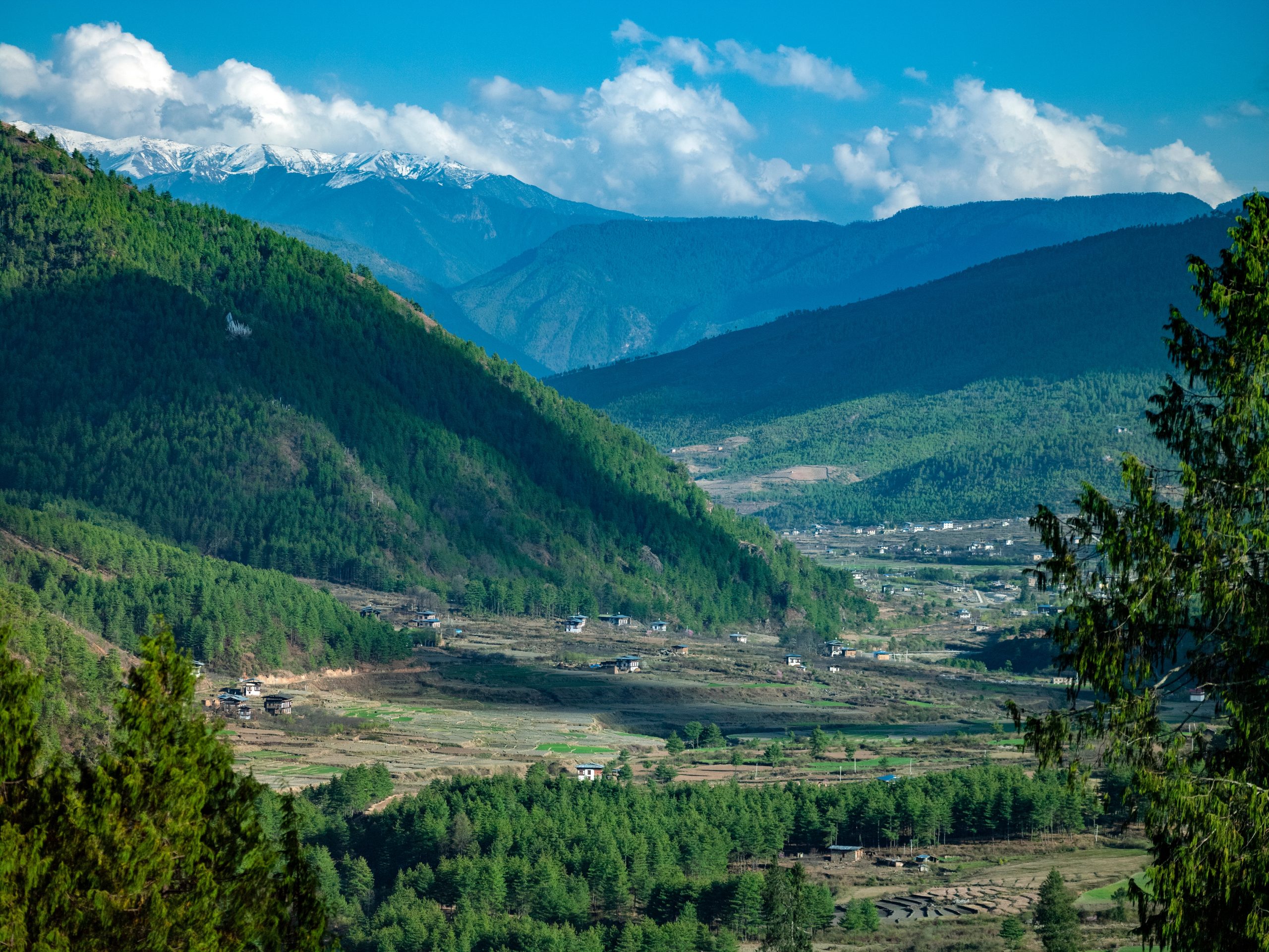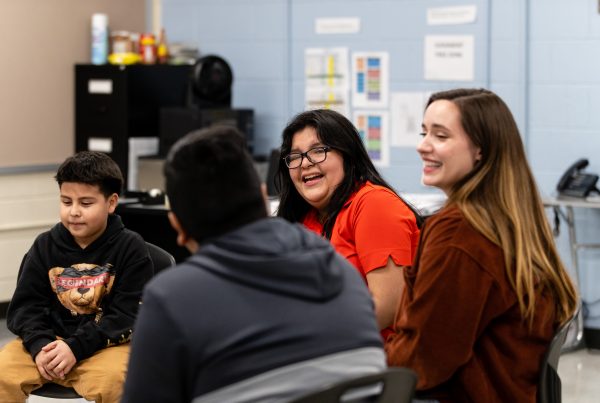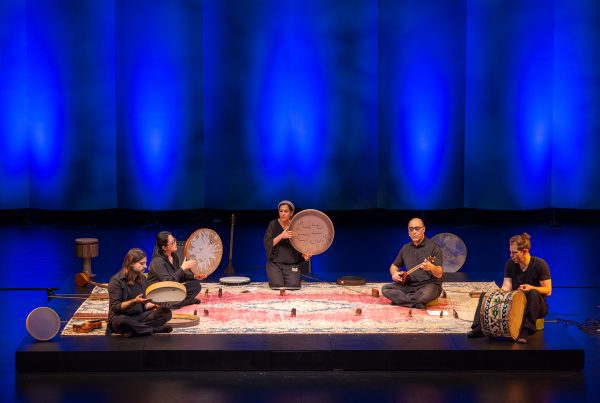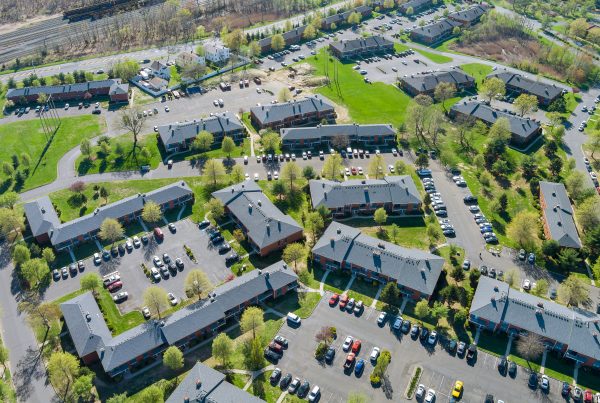Bhuwan Nepal, NICE Lead Refugee Support Services Case Manager
A Former Bhutanese Refugee Gives Back to His Community in Nashville
“It’s important for people to know where we came from, our past life, the struggles that we had. It’s good if they build relationships with the community and know our needs. When someone from the community in Nashville says ‘I am here to help,’ you feel safe. Isolation only worsens the effects of trauma, which many refugees or immigrants suffer from due to fleeing violence, torture, conflict, or persecution.” – Bhuwan Nepal
Bhuwan Nepal, the lead Refugee Support Service (RSS) Case Manager at NICE, was four months old when he and his family were forced to flee their home in Bhutan, a country in Southeast Asia. Bhuwan’s family fled what was called the “ethnic war,” which was prompted by a series of policies enacted by the Bhutanese government that targeted Bhutanese Nepalis in the country, stripping them of the ability to practice their cultural traditions and hampering their ability to access basic resources like housing and bank accounts.
Bhutanese Nepalis faced imprisonment, torture, and other forms of deadly violence at the hands of the military in an attempt to exile all Bhutanese Nepalis from the country. Much of the brutality Bhutanese Nepalis experienced at the hands of the Bhutanese government was censored and overwritten from national history.
“The government hides so much of it now,” Bhuwan said.
Over 120,000 Bhutanese people fled the country and became refugees in camps in neighboring countries. Bhuwan and his family were part of a refugee community that lived in camps in Eastern Nepal, where they stayed for 17 years.
While Bhuwan had access to an education during his time in the camp, the discrimination and isolation he experienced living in Nepal as a result of his refugee status inhibited his ability to secure a job after completing his education. Many Bhutanese refugees faced similar challenges living in Nepal while they awaited aid and resettlement, despite their shared ancestry with the Nepali people.
“We didn’t fully belong there. I had to hide who I was,” Bhuwan said. “My grandparents lived in a different camp, and when I would take the bus there, I would always fear someone asking me where I’m from, because they would discriminate. I had to hide my refugee status throughout my life in Nepal.”
Bhuwan’s family continued to experience hardship during their time in the refugee camp. On April 21, 2009, Bhuwan’s father, a political activist and an advocate for repatriation, was murdered outside their family’s home in the camp.
“I still remember we were ready to eat dinner, and I heard a knock on the door. My uncle was supposed to come to dinner and my father went to open the door,” Bhuwan said. “As soon as my father opened the door, the gunman shot him more than 5 times. No one could believe that he was killed in such a crowded camp.”
Due to concerns for their safety, Bhuwan and his family became an emergency resettlement case and were resettled in New Jersey only 21 days after his father’s death. Bhuwan and his family grieved the loss of his father and struggled with loneliness and the adjustment to living in the United States, as there were few Nepali speaking people in the area where they lived.
“I remember feeling hopeless after the trauma I experienced, after such a drastic transition. Everything was different, the language and the culture,” Bhuwan said. “I felt like life in the refugee camp was better than life in New Jersey because we had a lot of issues that we couldn’t communicate to our caseworker because of the language barrier.”
In November 2009, Bhuwan and his family moved to Tennessee in order to be closer to his sister and the local Nepali community, which was only made up of 10 families at that time. The Nepali population in Nashville has since grown to consist of over 3,000 people; this community shares a strong sense of connection and solidarity with each other, Bhuwan said.
Members of the Nashville Nepali community work hard to provide each other with the support and resources their neighbors need to thrive. However, encouragement and understanding from other Nashville neighbors goes a long way in welcoming Nepali refugees and immigrants to the city, Bhuwan said.
“It’s important for people to know where we came from, our past life, the struggles that we had. It’s good if they build relationships with the community and know our needs,” Bhuwan said. “Some families are isolated, even after 5 years or so living here. So it’s good to volunteer and help a family. Maybe take them to the park. Show them places. It is comforting to know that you have a friend here who understands you. When someone from the community in Nashville says ‘I am here to help,’ you feel safe. Isolation only worsens the effects of trauma, which many refugees or immigrants suffer from due to fleeing violence, torture, conflict, or persecution.”
Shortly after moving to Nashville, Bhuwan was approached by a NICE staff member who was looking for an interpreter to aid caseworkers as they began to resettle newly arrived refugees. Bhuwan became a consistent volunteer at NICE assisting Nepali-speaking refugees undergoing the resettlement process with language interpretation and other services.
“I decided to volunteer at NICE and to continue to work at NICE because I didn’t want refugee and immigrant people to feel what I felt at the beginning of my time in the United States. Even though I had another job, I decided that I was going to make time to come to the NICE offices and volunteer and help these people,” Bhuwan said. “I’m going to continue to work and serve my community. That’s why I’m here.”
After volunteering for several months, Bhuwan was hired by NICE as a Reception & Placement case manager, where he continued to assist refugees and immigrants during their transition to life in the U.S. Transitioning into this new role was easy for Bhuwan because of his prior experience as a volunteer and as a refugee himself, he said.
“Working as a caseworker at NICE helped me to become more connected with the people. I was happy to transition from being a volunteer to a staff member, because I was able to get to know the families I served more and provide services as they needed and fulfill their needs,” Bhuwan said.
Now, Bhuwan serves as the lead Refugee Support Service (RSS) Case Manager, where he focuses on connecting refugees and immigrants with employment, providing guidance and support to clients, and building relationships with employment partners.
“Our goal is to make our clients self-sufficient, with a stable job with a good wage and good benefits so that they don’t have to depend on other services,” Bhuwan said. “We want to help them become independent so they don’t have to worry about where they can get the resources they need.”
Bhuwan plans to pursue his Bachelor’s degree at Western Governors University in accounting and business administration in the coming months. He is excited to put his skills in mathematics to use and to pursue something that interests him, he said.
In his free time, Bhuwan spends time with his family, including his 3-year-old daughter, Myrah, tending to their garden in their backyard. They have been able to grow a wide variety of produce to eat, including cucumbers, onions and cauliflower. He also loves world history and learning more about countries all around the world by watching documentaries, he said.
“If people ask me about a specific country, I know a lot of information about it because I love watching documentaries,” Bhuwan said.
Bhuwan’s ongoing support of local refugee communities in Nashville is testament to his commitment to providing our new neighbors with the necessary resources to find stable employment and achieve security in their new home. His investment in the success of our friends in Nashville is immensely impactful in creating an environment where all people can find belonging, today and into the future.





